ADHD Testing & Treatment in Texas for Children & Teens
Transform the challenges of ADHD into opportunities for growth and achievement with testing, therapy, and medication-assisted treatment designed for focus and behavioral success.
Launch Your Child’s Healing Journey in Three Simple Steps
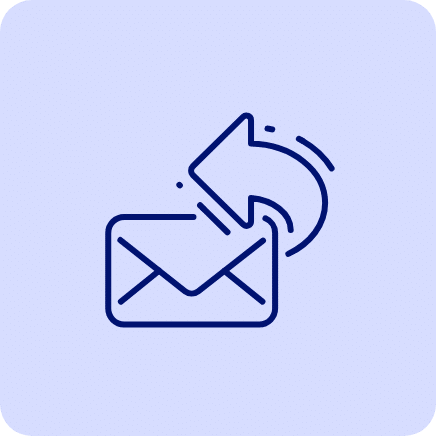
1. Get in Touch
Get started with Mind Works by filling out our simple contact form online or giving us a call.
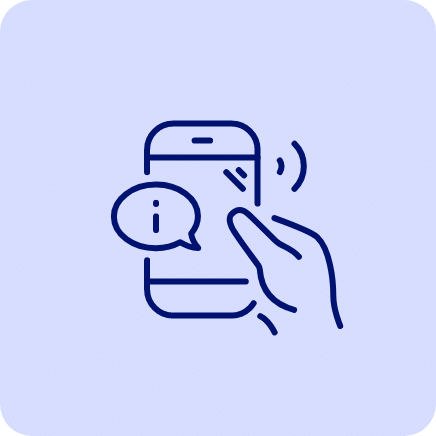
2. Complete Intake Process
Submit all required paperwork so we can better understand your child’s history and needs.
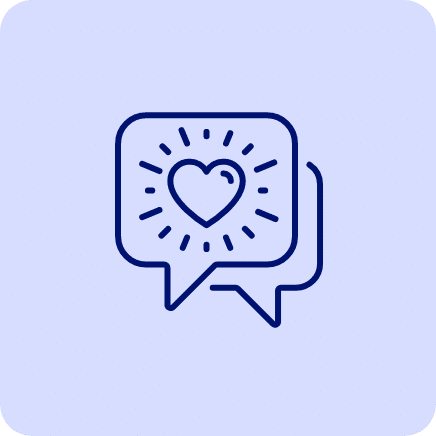
3. Begin Treatment
Your child’s targeted plan will begin with testing or therapy and medication management.
Launch Your Child’s Healing Journey in Three Simple Steps

1. Get in Touch
Get started with Mind Works by filling out our simple contact form online or giving us a call.

2. Complete Intake Process
Submit all required paperwork so we can better understand your child’s history and needs.

3. Begin Treatment
Your child’s targeted plan will begin with testing or therapy and medication management.
Feeling Overwhelmed by Parenting Challenges?
Let’s Tackle This Together.
Parenting can be full of pressures, uncertainties, and challenges. Together, we’ll create a supportive plan tailored to your child’s needs, ensuring you both are set up for success.
Unlocking Focus: A Comprehensive ADHD Management Approach for Kids
Understanding and managing ADHD in children requires a multifaceted approach that Mind Works is uniquely equipped to provide. From the initial signs of inattention, hyperactivity, or impulsivity, to the challenges these symptoms can pose in academic and social settings, our team of psychologists and psychometrists specializes in ADHD assessments that illuminate the best path forward for your child. This comprehensive evaluation is the cornerstone of developing a strategy that addresses your child’s specific needs, enhancing their ability to learn, socialize, and execute tasks effectively.
Upon diagnosis, Mind Works adopts an integrated healthcare approach, combining therapy, medication management, and ongoing support to ensure the best outcomes for your child. Medication, when necessary, is prescribed with careful consideration, aiming to alleviate symptoms while minimizing side effects. Our collaborative model ensures that your child’s care team—comprising physicians, therapists, and you, the parent—works in unison to support your child’s journey towards focus, stability, and success.

How ADHD Testing and Treatment Help Your Child Thrive at Home, School, and Play
If your child is showing symptoms of ADHD or has already received a diagnosis, getting the appropriate help can significantly improve your child’s chances of happiness and success in life. Parents have a hard time understanding a child with ADHD’s behaviors and may misinterpret symptoms as forgetfulness, lack of intelligence, or willful disobedience. Seeking ADHD treatment at Mind Works can provide your child with many benefits.

Accurate Diagnosis
Our specialized ADHD assessments provide a clear understanding of your child’s condition, differentiating between ADHD and other behavioral or emotional challenges, setting the stage for targeted interventions.

Customized Treatment Plans
Leveraging insights from testing, Mind Works creates personalized treatment strategies that may include therapy, medication, and practical support for both children and their families.

Enhanced Academic Performance
With our detailed evaluation, we identify and advocate for the necessary educational accommodations, ensuring your child receives the support they need to succeed in school.

Improved Social Interactions
Through therapy, children with ADHD develop essential social skills, learning to build and maintain healthy relationships with peers and adults alike.

Effective Coping Strategies
Our evidence-based therapies equip children with coping mechanisms to manage symptoms of ADHD, enhancing focus, reducing impulsivity, and promoting emotional regulation.

Family Support and Education
Mind Works provides parents and siblings with education and strategies to create a supportive home environment, fostering understanding and effective communication.
How ADHD Testing and Treatment Help Your Child Thrive at Home, School, and Play
If your child is showing symptoms of ADHD or has already received a diagnosis, getting the appropriate help can significantly improve your child’s chances of happiness and success in life. Parents have a hard time understanding a child with ADHD’s behaviors and may misinterpret symptoms as forgetfulness, lack of intelligence, or willful disobedience. Seeking ADHD treatment at Mind Works can provide your child with many benefits.

Accurate Diagnosis
Our specialized ADHD assessments provide a clear understanding of your child’s condition, differentiating between ADHD and other behavioral or emotional challenges, setting the stage for targeted interventions.

Customized Treatment Plans
Leveraging insights from testing, Mind Works creates personalized treatment strategies that may include therapy, medication, and practical support for both children and their families.

Enhanced Academic Performance
With our detailed evaluation, we identify and advocate for the necessary educational accommodations, ensuring your child receives the support they need to succeed in school.

Improved Social Interactions
Through therapy, children with ADHD develop essential social skills, learning to build and maintain healthy relationships with peers and adults alike.

Effective Coping Strategies
Our evidence-based therapies equip children with coping mechanisms to manage symptoms of ADHD, enhancing focus, reducing impulsivity, and promoting emotional regulation.

Family Support and Education
Mind Works provides parents and siblings with education and strategies to create a supportive home environment, fostering understanding and effective communication.
Begin Your Child’s Success Story
Ready to get started or have more questions for our team before moving forward? Give us a call or fill out a simple form online to start the journey toward your child’s thriving future.
Why Mind Works?

Specialized Expertise
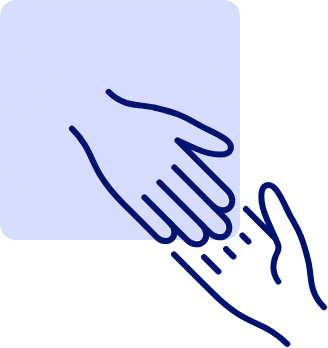
Comprehensive Treatment Options
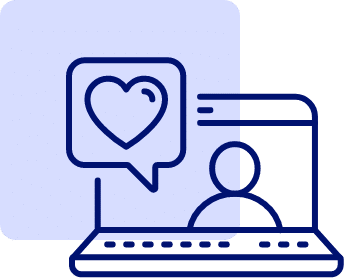
Collaborative Approach
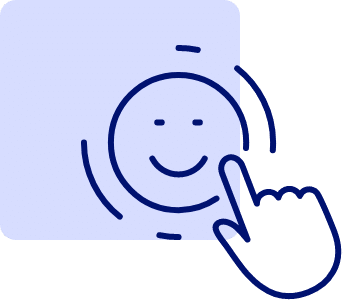
Evidence-Based Care
Frequently Asked Questions:
ADHD (Attention-Deficit Hyperactivity Disorder) is a common neurobehavioral disorder that affects the ability to concentrate, remain still, and control impulsive behavior.
Mind Works uses a comprehensive approach for diagnosis, including a detailed evaluation by our healthcare professionals to differentiate ADHD from other medical conditions and to assess for co-existing disorders. We tailor the assessment to each child, potentially including cognitive tests (like IQ and achievement tests), as well as evaluations for emotional, behavioral, and executive functioning, to identify strengths, weaknesses, and the best course of action.
Untreated ADHD can lead to academic difficulties, social and family relationship challenges, increased risk of self-harm, substance abuse, and other negative life outcomes. Early intervention and treatment are key to preventing these consequences.
If your child, aged 4 to 18, exhibits academic or behavioral problems alongside symptoms of inattention, hyperactivity, or impulsivity, it may be time to seek an evaluation. Mind Works also assesses younger children displaying ADHD-like symptoms, focusing on behavior management strategies.
We provide an integrated approach to treatment, coordinating care between the physician and therapist. Medications, such as stimulants and non-stimulants, are considered when therapy alone is insufficient, with a careful evaluation of benefits versus side effects.
Common side effects include sleep and eating issues, growth concerns, nausea, and mood changes. Our team at Mind Works closely monitors these effects and adjusts treatment plans as needed, ensuring the health and well-being of your child.
Not necessarily. While some individuals may continue medication into adulthood, others may find they can manage symptoms with therapy and coping strategies developed over time. Decisions about medication duration are personalized and regularly reviewed.
Therapy at Mind Works aims to help children understand their condition, develop coping skills, improve self-esteem, and build relationships. Evidence-based modalities like CBT and social skills training provide strategies for managing ADHD symptoms alongside or independent of medication.
Mind Works encourages a collaborative approach, offering parent training and strategies to create a supportive environment at home. Techniques include establishing routines, clear communication, positive reinforcement, and strategies to manage impulsivity and inattention.
Success Stories
“Highly recommend Mind Works. I am a clinician in Illinois and needed to find a clinic in Texas that could provide services to my client that was moving. This is no easy feat to do across the United States. Mind Works was fabulous to work with from the very beginning. Coordination of care was 5 stars and my “previous” client is very happy with their new counselor. Thank you very much for going above and beyond during this difficult time so many other counseling offices are facing. I appreciate all the help and coordination you offered my client!”
Shelley Skas
“I have known the owners for over 8 years and have taken a family member to Mind Works. Therefore, I can speak of them both personally and professionally. There truly is no better place for this service, especially for children and young adults. On the personal level, I know how much they truly care about everyone they meet. On a professional level, the entire staff is a reflection of the dedication to helping others and competence that gets results that the owners exude. During the incredibly trying time of this pandemic and the fear and anxiety it has caused many people, we are incredibly blessed to have Mind Works available to support.”
Jim West
Esther Kelly
“The front desk staff is kind and courteous and helped me find the right therapist for my child. When I met my therapist she was kind and explained the process to me. I love that she included me in the play therapy process and helped me understand how to help my child. Thankful for the therapists at Mind Works!”
Amira Maya-Martinez
“Mindworks is the leader in child centered play therapy and collaborative care in San Antonio and surrounding areas. Their focus is solely on the mental health of children and teenagers. Each clinician at all four locations is seasoned, knowledgeable, experienced, and capable. Parents trust that their child is going to get the treatment and services they need and deserve.
I thoroughly enjoyed working as a clinician at Mindworks. The support and leadership is consistent and outstanding. Unlike any other job that I have had, leadership and clinicians work together to cultivate an awesome work environment.”
Dana Carter
Help Your Child Soar to New Heights
A world of possibility awaits your child, and we’re so excited for the opportunity to help them work through roadblocks, improve their skills, and unleash their potential. Get in touch with our team and start your child down a happier, healthier path today!

